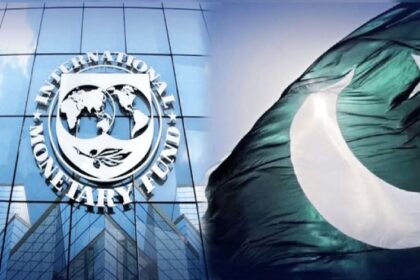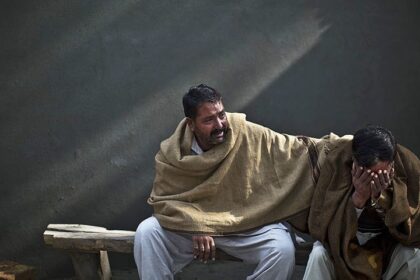Pakistan faces the risk of urban flooding as Monsoon rains begin in various parts of the country, stoking fears, especially in the aftermath of the devastating floods of 2022.
The Pakistan Meteorological Department issued a warning in this regard. The Met Office said there was a risk of urban flooding, landslides and flash floods in various vulnerable parts of the country.
It revealed that strong Monsoon currents were penetrating the central and upper parts of the country, whereas a westerly wave was also affecting the upper parts of the country. The current flood warning is primarily for the 5th to 7th of July but will remain valid afterwards, considering that Pakistan is greatly threatened by changing weather patterns.
Despite being a minimal contributor to global greenhouse emissions, Pakistan is one of the most vulnerable countries to the effects of climate change, including urban flooding. Global warming is causing glaciers up north to melt, which leads to devastating floods in various parts of the country.
Moreover, the increasing urbanisation and illegal constructions in the path of rivers have also led to catastrophes. Urbanisation is primarily responsible for deforestation, which is a trigger of climate change in itself. Similarly, illegal construction in the natural path of rivers is another cause of damage to life and infrastructure.
Following 2022’s devastating floods, Pakistan was expected to take initiatives to thwart such incidents in the future or at least protect itself from the effects. However, as the country faces the possibility of flooding again, there is a common concern that Pakistan may not be prepared to deal with a similar crisis.
International Pledges Fall Short
As the world witnessed the devastating effects of climate change in 2022, a gathering in Geneva pledged $11 billion for Pakistan after it incurred losses of $16 billion in the floods. However, to this date, a majority of those pledges have yet to materialise.
From the $2.199 billion pledged by the World Bank, only $969 million has been disbursed so far, with an additional $119.3 million expected soon. Similarly, the Asian Development Bank (ADB) has also disbursed $108.79 million out of the committed amount of $1.561 billion, whereas some of the remaining amount will be given to Pakistan this year.
Asian Infrastructure Investment Bank (AIIB), Islamic Development Bank (IsBD) and China pledged $1 billion, $600 million and $100 million, respectively, but have not issued any substantial amount.
These figures only make up a small chunk of the pledged amount, and will not be sufficient for Pakistan to build a flood-resilient infrastructure or take measures to save lives in case of another deluge.
Extreme Weather Events
Climate change is bringing forth extreme weather events, including heatwaves, in Pakistan. During the past few weeks, the country experienced severe heat, with the maximum temperature going as high as 57 degrees Celsius.
The heatwave began on 21 May and is continuing in some parts of the country. Approximately 568 citizens have died in southern parts of Pakistan, whereas many others faced heatstroke. Heatwave is always accompanied by fears of food insecurity, as droughts can bring forth this crisis for millions of people.
Heatwaves are not only limited to Pakistan, but various other parts of the world are suffering from them alongside other extreme weather events.
Women’s Health
According to the National Institute of Health, climate change is also responsible for changes in women’s menstrual cycle, with the onset being either delayed or earlier in countries vulnerable to the effects of this phenomenon.
Another complication is that rising temperatures are causing cortisol levels to go up in women, which also leads to painful cramps during menstruation, a condition called dysmenorrhea.
Migration
As extreme weather events become more common, migration too will follow suit. It is a natural by-product of climate change. Another related phenomenon is displacement, which has been seen more frequently in Pakistan. Floods often wreak havoc in areas that come in their way and lead to people being displaced.
The clock is ticking on climate change and if necessary actions are not taken now, it may be too late in years to come.
















